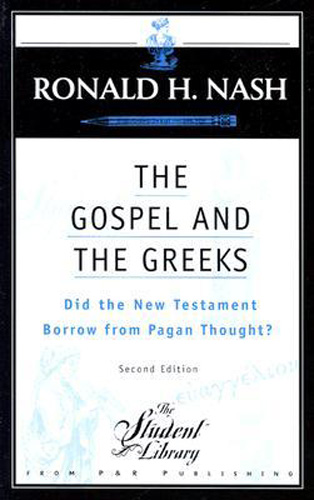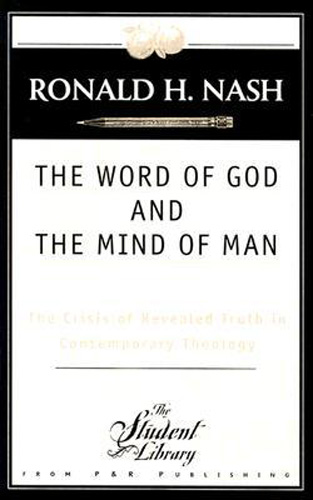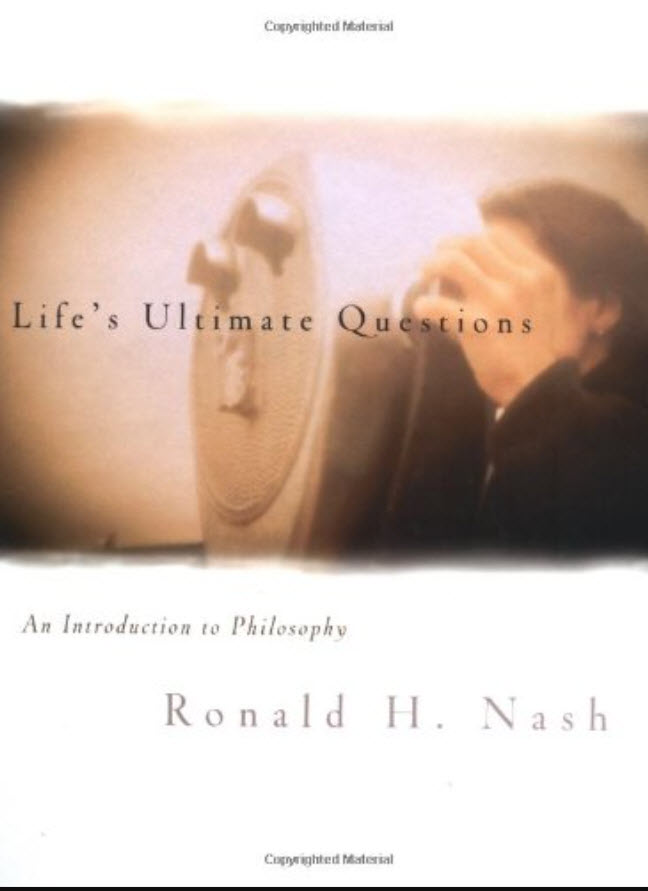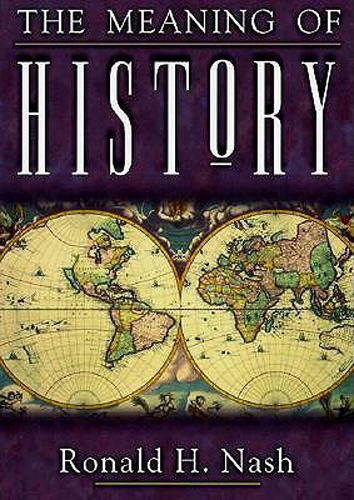History of Philosophy and Christian Thought - Lesson 18
Matter
Discussion of the nature and substance of matter.

Matter
Aristotelian Philosophy
Part 7
XI. Primary Matter
A. Five Propositions
1. Primary matter is a substratum common to all substances.
2. It cannot exist by itself, that is, without some form. Therefore it is a theoretical abstraction.
3. It has no distinguishable properties and is thus unknowable.
4. It is eternal; it can never be created or destroyed.
5. It is the ultimate basis of individuation; it is what ultimately sets apart different chairs, desks and people.
B. Historical Examples
1. Alchemy
2. Transubstantiation
Introduction
0% Complete- 0% Complete
Thales and Anaximander were two philosophers in the sixth century BC that lived in Miletus.
0% Complete - 0% Complete
Heraclitus and Pythagoras lived into the 5th century BC.
0% Complete - 0% Complete
Any worldview addresses the subjects of God, ultimate reality, human knowledge, ethics and human persons.
0% Complete - 0% Complete
Fundamental beliefs of a naturalistic worldview is that nothing exists outside the physical universe and that all things evolved.
0% Complete - 0% Complete
Plato was a student of Socrates and lived into the fourth century BC. He opposed hedonism, empiricism, relativism, materialism, atheism and naturalism.
0% Complete - 0% Complete
Plato described the universe as having three levels: the world of particulars, the world of forms, and the form of the good.
0% Complete - 0% Complete
Plato's view of the universe was dualistic.
0% Complete - 0% Complete
One of Plato's fundamental arguments is that the human soul is immortal.
0% Complete - 0% Complete
Evaluation of Plato's arguments and comparison of Plato's philosophy with biblical theology.
0% Complete - 0% Complete
Empiricism teaches that all human knowledge arises from sense experience. Rationalism teaches that some human knowledge does not arise from sense. experience
0% Complete - 0% Complete
Aristotle was a student of Plato and lived in the fourth century BC.
0% Complete - 0% Complete
Aristotle rejected Plato's doctrine of two worlds.
0% Complete - 0% Complete
Discussion of Aristotelian philosophy as it relates to the incarnation.
0% Complete - 0% Complete
Aristotle's philosophy as it relates to attributes of God and fundamental assumptions about psychology.
0% Complete - 0% Complete
Aristotle made a distinction between passive intellect and active intellect.
0% Complete - 0% Complete
Discussion of the strengths and weaknesses of the law of non-contradiction.
0% Complete - 0% Complete
Discussion of the nature and substance of matter.
0% Complete - 0% Complete
Hellenistic philosophy was an approach that was popular from the fourth century BC to the fifth century AD.
0% Complete - 0% Complete
Stoics were determinists who believed in living according to nature.
0% Complete - 0% Complete
Hedonism emphasized pleasure as the greatest good. "Eat, drink and be merry for tomorrow we might be dead."
0% Complete - 0% Complete
Philo's philosophy was based on a synthesis of Stoicism and Platonism.
0% Complete - 0% Complete
Implicit "Logos" Christianity is an underlying theme in the book of Hebrews.
0% Complete - 0% Complete
Plotinus lived in the third century AD and is considered the founder of Neoplatonism.
0% Complete - 0% Complete
Augustine is a Latin church father, is considered by many to be one of the most important figures in the development of Western Christianity.
0% Complete - 0% Complete
Augustine wrote Confessions as an autobiographical work to record his experience as a sinful youth and his experience becoming a follower of Christ.
0% Complete - 0% Complete
Augustine wrote to refute some heresies of the day by focusing on the concepts of faith and reason.
0% Complete - 0% Complete
Augustine writes about the problem of evil and describes evil as the absence of good.
0% Complete - 0% Complete
Augustine writes to refute Pelagianism by focusing on the biblical teaching about sin.
0% Complete - 0% Complete
Augustine writes to refute Donatism.
0% Complete - 0% Complete
The fundamental idea of skepticism is that no one can know anything. Augustine this statement contradicts itself because the skeptic is claiming that you can know that you can't know anything.
0% Complete - 0% Complete
When Augustine wrote "The City of God," he had a linear view of history.
0% Complete - 0% Complete
In Augustine's theory of knowledge, he says that eternal reason and human reason are two different levels of reason.
0% Complete - 0% Complete
Augustine was personally convinced of the importance of divine illumination.
0% Complete - 0% Complete
The intellectual background of Thomas Aquinas was influenced by the discovery of ancient manuscripts, the rise of universities, the rise of religious brotherhoods and the rise of Muslim philosophy.
0% Complete - 0% Complete
Aquinas describes faith as whatever a human can know through special revelation, and reason as whatever a human can know outside of special revelation.
0% Complete - 0% Complete
Aquinas attempts to prove God's existence.
0% Complete Aquinas describes four kinds of law as eternal, divine, natural and positive.
0% Complete- 0% Complete
The rationalists and empiricists set the stage for Kant and other philosophers of the modern era.
0% Complete - 0% Complete
Kant argued that moral requirements are based on a standard of rationality he dubbed the “Categorical Imperative."
0% Complete - 0% Complete
Kants two worlds are the phenomenal world and the noumenal world.
0% Complete - 0% Complete
Discussion of criticisms and questions about Kant's ideas.
0% Complete - 0% Complete
Similarities between Kant's ideas and postmodernism.
0% Complete - 0% Complete
The dialectic is a central idea in Hegel's philosophy.
0% Complete - 0% Complete
Ideally, Marxism begins with class struggle, then revolution, dictatorship of the proletariat, withering away of the state, and a utopian classless society.
0% Complete - 0% Complete
Discussion of four faces of Marxism.
0% Complete - 0% Complete
Nietzsche proclaimed that, "God is dead." His cure was to live life knowing there is no ultimate meaning. Kierkegaard emphasized a worldview based on true faith.
0% Complete
In this class, you will explore the rich history of philosophy and its relationship with Christian thought. The course begins with an introduction to the definition and importance of philosophy in Christian theology. You will then delve into the evolution of philosophical thought from the Pre-Socratic era, through the Classical Greek philosophers, and into the Hellenistic period. As you progress, you will discover how early Christian thought emerged and developed during the Patristic period, with a special focus on Augustine. The class continues with an examination of medieval Christian thinkers, such as Anselm and Thomas Aquinas, and concludes with an analysis of modern philosophers like Descartes, Kant, and Kierkegaard, and their influence on contemporary Christian thought.
Two other books that are recommended reading for this class are Confessions by Augustine and Phaedo by Plato.
Recommended Books
The Gospel and the Greeks: Did the New Testament Borrow from Pagan Thought?
Examines contemporary claims for Christian dependence on Hellenistic philosophy, Greco-Roman mystery religions, and Gnosticism. He finds the case for dependence in the...

The Word of God and the Mind of Man
The last two centuries of Christian theology are the record of an evolving attack on the role of knowledge in the Christian faith. The purpose of this book is to challenge...

Life's Ultimate Questions: An Introduction to Philosophy
Life's Ultimate Questions is unique among introductory philosophy textbooks. By synthesizing three distinct approaches

The Meaning of History
The Meaning of History is a concise look at the meaning of the history of the world from the viewpoints of major historians and philosophers. By examining the individual...

Dr. Ronald Nash
History of Philosophy and Christian Thought
th620-18
Matter
Lesson Transcript
Now, one reason the doctrine of primary matter is because this is another example of something I discussed last week. I think, of how even the best minds in history, once they get committed to a system, end up eventually taking one logical step after another that finally leads them into. And the term I used last week was the deepest of all. DUDAS With the exception of your professor, who has never yet done that, the doctrine of primary matter is one of the Achilles heels of Aristotle's system. It is. It is, I think, by itself a sufficient reason to abandon Aristotelian ism. And I think if some of you are really, really keen here and so on, you could, you could take this doctrine of primary matter, which also exists in Thomas Aquinas as Christian rendition of Aristotle, and suggest that primary matter is the kind of Achilles heel of Thomson. Now a good source to follow here is the same Gordon Clarke that I've mentioned earlier in the course, and let me tell you the book in which you can pursue that. It is Gordon Clarke's book that leads to doing it was a history of Philosophy that was published a year or two after I took my first History of Philosophy course at Barrington College. I think it was published in 1957. They leased to Dewey. I use this as my text in this course. When I did the first taping of this course, I finally gave it up because too many students got discouraged. It was too hard to follow. After you got through about the first 50 to 70 pages of theories to Dewey, too many students just couldn't give the kind of concentration that was necessary to follow Clarke.
[00:02:33] But doggone it, it's a great book. Reed Gordon Clarke on Aristotle's Primary matter and then switch immediately to what Gordon Clarke says about the doctrine of primary matter in Thomas Aquinas. And let me just summarize the astounding statement he makes that the presence of the doctrine of primary matter in Aquinas may very well mean that Aquinas, without intending it was teaching pantheism, was teaching pantheism, or I'll tell you, if we could get a million Tomas in the world to even begin considering that possibility. We would have accomplished quite a bit. Now, let me see if I can covered in 5 minutes. In the meantime, it would help if you could open your life's ultimate questions to the appropriate page. Page 106. All right. There it is. Page 106. Let me reproduce that diagram earlier in the course. Earlier in the course, I drew a triangle to illustrate what I called Plato's three story universe. I know that that has never law. You've never lost your interest in that particular presentation. Well, now, once again, we can draw a triangle. And we can, in a sense, a very loose sense. Talk about Aristotle's three story universe. Here we have the top of the triangle. Then at the bottom, we have something else. But here in the middle, Aristotle teaches that everything except God and a few other exceptions is matter plus form. Then at the top of Aristotle's universe, you have pure form. And this would include God and maybe some other celestial beings. Lesson One of the unanswered problems in Aristotle's philosophy is whether he believed in one God or whether he believed in 5052 gods. I forget what the number was 52, 54 or something like that. Now, the the question before us at this moment is this what's at the bottom of Aristotle's universe? And the answer is it is matter.
[00:05:16] But it is a funny kind of matter. It is what Aristotle calls primary matter. But be careful. It's not what you think. And there are some points on the bottom of page 106 that I'm going to urge you to memorize to help you understand primary primary matter. I want you to think of not especially some particular substance, but just a collection of iron, let us say, or copper or sodium. Well, sodium, you know, any of the any of what we regard as the elements. But instead of this being a copper doorknob or it just it's just a mass of copper. Okay. Now we know that everything is matter plus form. Is it possible to get below these basic kinds of things that exist? Is it possible to get below them and get down to their substratum? Could we, for example, if we had the power, snap our finger or wave a magic wand and remove the form of copper in us or iron us and get And could we possibly in that way discover that there is a kind of basic matter that underlies even these fundamental substances that exist in the world? What Aristotle said, yes, but common to everything that exists. There is a kind of matter that underlies these things too, which are then added essential properties or forms, and this is what Aristotle calls primary matter. But here's what he says about it. And look at the points at the bottom of page 106. Number one primary matter is a substratum that is common to all substances underneath everything that exists with the exception of God and these other things that are pure form is the same kind of matter. Second point, but it cannot exist by itself. It is only a theoretical abstraction.
[00:07:49] You can think about it, but you can never find it by itself. Furthermore, this is now point three. It has, and you might want to underline this or put a star by it. It has no distinguishable properties and thus is unknowable. Remember, it can't exist by itself, but it must be there. But you can't know it. Why? Because it is neither this nor that. It is neither here nor there. It has no properties, it has no colors, no textures. It is unknowable. Question Mr. Aristotle, if it's unknowable, how do you know it exists? Hmm. How do you know it exists? Fourth point. It is eternal. It can never be created or destroyed. And five, it is the ultimate basis of individuation. It is what ultimately sets apart different chairs, different desks, and different people. Now, on one level, what distinguishes you from me is our bodies, our matter. Okay. My body is over here. Your body is over there. But there is a more basic substratum, even underneath our bodies. And that's our primary matter. And my primary matter is over here, although it really has no properties, you see. And your primary matter, fortunately, is over there, But it has no properties either. Now, let me find a non pejorative word to describe this. This is stupid. This is stupid. This is idiotic. This is really the Achilles heel of Aristotle's system. And let me tell you. Any system. It's almost as if every system except one ends up getting trapped in this kind of foolish way. This is like. This is like the boundless of anaximander. This is like the matter of Aristotle, Plato. And I repeat again, we're going to keep running into this thing. It's like the Darth Vader of philosophy.
[00:10:19] We're going to keep running into it throughout the rest of this course. Why does it keep showing up? It's because philosophers keep trapping themselves in. Now, I'll tell you, there is one philosophical system in which there is no philosophical Darth Vader, and you can figure out which system it is. As we go through this course. Okay. Now, I'm going to give you two historical examples of how Aristotle's doctrine of primary matter have played a role in the history of ideas. First of all, there's the bad. There's the matter of, Oh, here I go, seeking for a word. Now I'm going to need your help. This is so embarrassing. What is the word we use for that false science in which various thinkers during the Middle Ages. Alchemy. Thank you. Alchemy. I have read that the basic idea behind alchemy was Aristotle's doctrine of primary matter, for example. Here we have a pile of lead. It's matter plus form, but the ultimate matter underneath the lid is this primary matter. See? So that what a lot of these pseudo scientists were trying to do after the Renaissance was to eliminate the form of leading us. Take that same primary matter and add to it the properties of gold. And thus the science of alchemy was really an attempt to use the primary matter and add the properties of gold in us. One other example the Roman Catholic doctrine of transubstantiation. What is that doctrine? It is the belief that at the moment of the miracle, what happens in the Roman Catholic idea of transubstantiation it is this the bread or the wafer? They get away from the bread, they use a wafer and then they dip the wafer in the wine. They won't give the wine to the community.
[00:12:35] See, you got to be a Presbyterian to get the real wine in the Lord's Supper. All they do is dip the wafer in the wine. It saves money that way. I guess the properties of the bread and the wine remain the same. But underneath, at the moment of the miracle of transubstantiation, notice trans substance of substantiation. See underneath the properties, the underlying matter changes into the body in the blood of Christ. Now I'm one of a number of people who believe that you cannot really come up with. And here I'm using quotation marks a rational account of transubstantiation and the miracle of the mass. Without something akin to Aristotelian metaphysics. Now, I once asked a Catholic priest, I think he was a Jesuit, if that was the case, and he wanted to change the subject. But if you study the history of the mass and you study the history of transubstantiation, you'll find that it's at the same basic time during the Middle Ages, when Aristotle Aristotelian metaphysics begins to assume prominence in Roman Catholic thinking, or so I'm told. Now, Catholics will tell you that Catholics always believed Roman Catholics always believed that the bread and the wine or whatever you eat and you drink turns into the literal body in the blood of Christ. But they didn't really have a mechanism by which to explain that until they had this particular doctrine from Aristotelian metaphysics. All right. I don't want to pursue that any more. I just. I just want this to be one more leg in which you understand the eternal recurrence of the doctrine of primary matter, of the boundless. Of the Darth Vader theme. Okay.